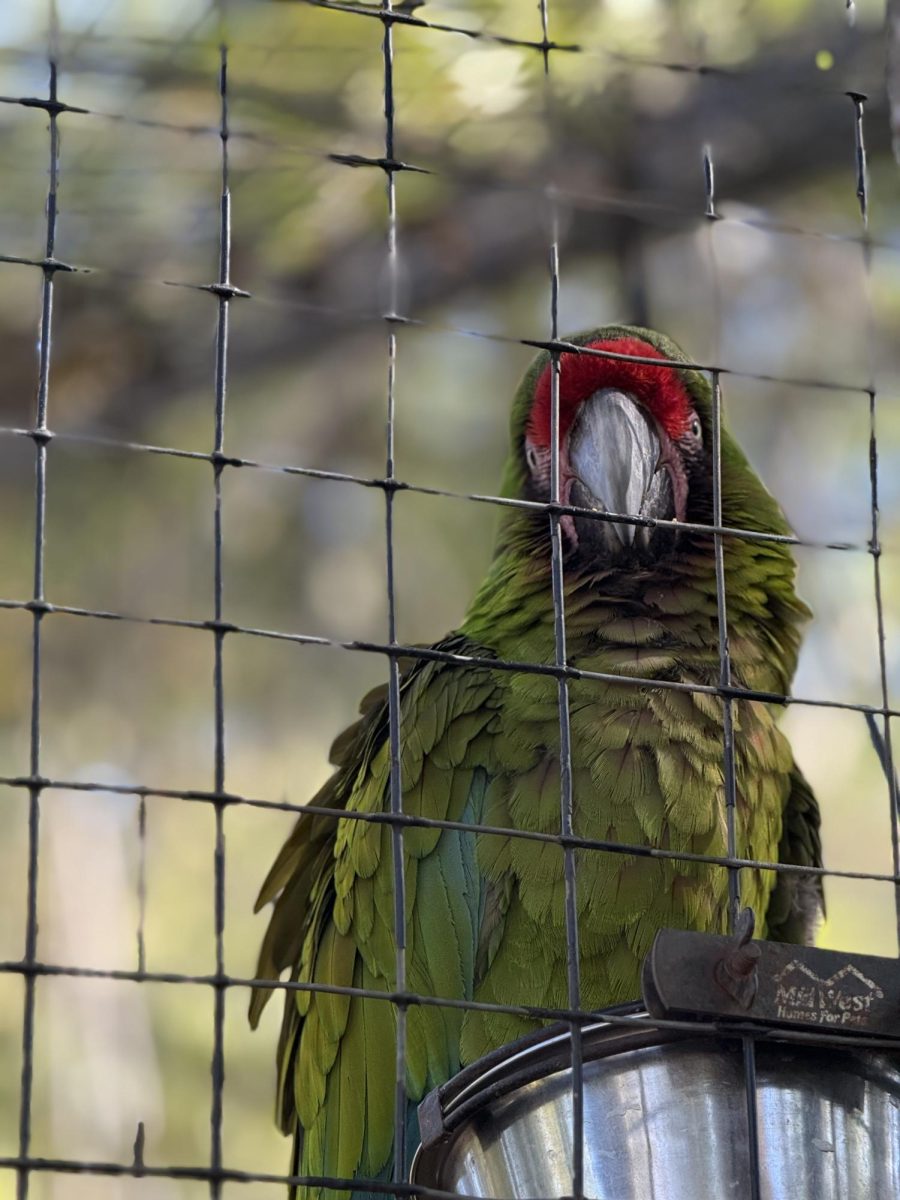Actress, songwriter and singer Sabrina Carpenter has recently run into some controversy after the release of her most recent album, ‘Man’s Best Friend.’ Though some fans have taken to her defense, the imagery employed along with her past references to questionable media make this album more nefarious than it seems.
The album art features Carpenter kneeling next to a suited figure. One hand is braced on the ground while the other caresses the figure’s knee. The man has a hand fisted in Carpenter’s hair.
Paired with the title, my first thought was that she was likening herself to man’s best friend- dogs. Some TikTok users, such as TK, have compared Carpenter’s cover to ads from the late 1900s, which feature eerily similar imagery. One ad for a hair creme from the 1970s features a headshot of a smiling woman with a man’s fist in her hair. It is captioned, ‘There’s a whole handful of reasons to try new Tame.’ Similar to the positioning and titling of Carpenter’s album, the ad is meant to imply a much darker, misogynistic message.
This degrading imagery seems more intentional when Carpenter’s other references are taken into account. One example is her iconic Juno song. During the live performance, she strikes a provocative pose and asks, ‘Have you ever tried this one?’ While it seems like an empowering show of women’s sexuality, the title of the song is a reference to a movie about a pregnant minor’s relationship with a grown, married man.
Another example of infantilization comes from her Nonsense outro during the Eras tour, where she sang the lyrics ‘I’m full grown but I look like a Nina.’ In Spanish, Nina means ‘little girl.’ Given the sexual nature of the song, this is completely inappropriate. In addition to possible references to Lolita, a 1997 film that romanticizes pedophilia and incest, some have accused Carpenter of pedobating.
During a time where women’s bodies are getting increasingly policed by things such as the overturning of Roe vs Wade, it’s not surprising that imagery glamorizing female submissiveness and objectification was not received well. Her content romanticizes and reinforces misogynistic ideals of the young, innocent vixen.
One common response to critiques such as this claim that the album is meant to be a tongue in-cheek critique of misogyny. TikTok user Dean Young refuted this defense by pointing out that if the satire is indistinguishable from the thing it is critiquing, it is not successful satire. Even if the cover was meant to be ironic, Carpenter’s music, while catchy, is not radical enough to the imagery she employs.


